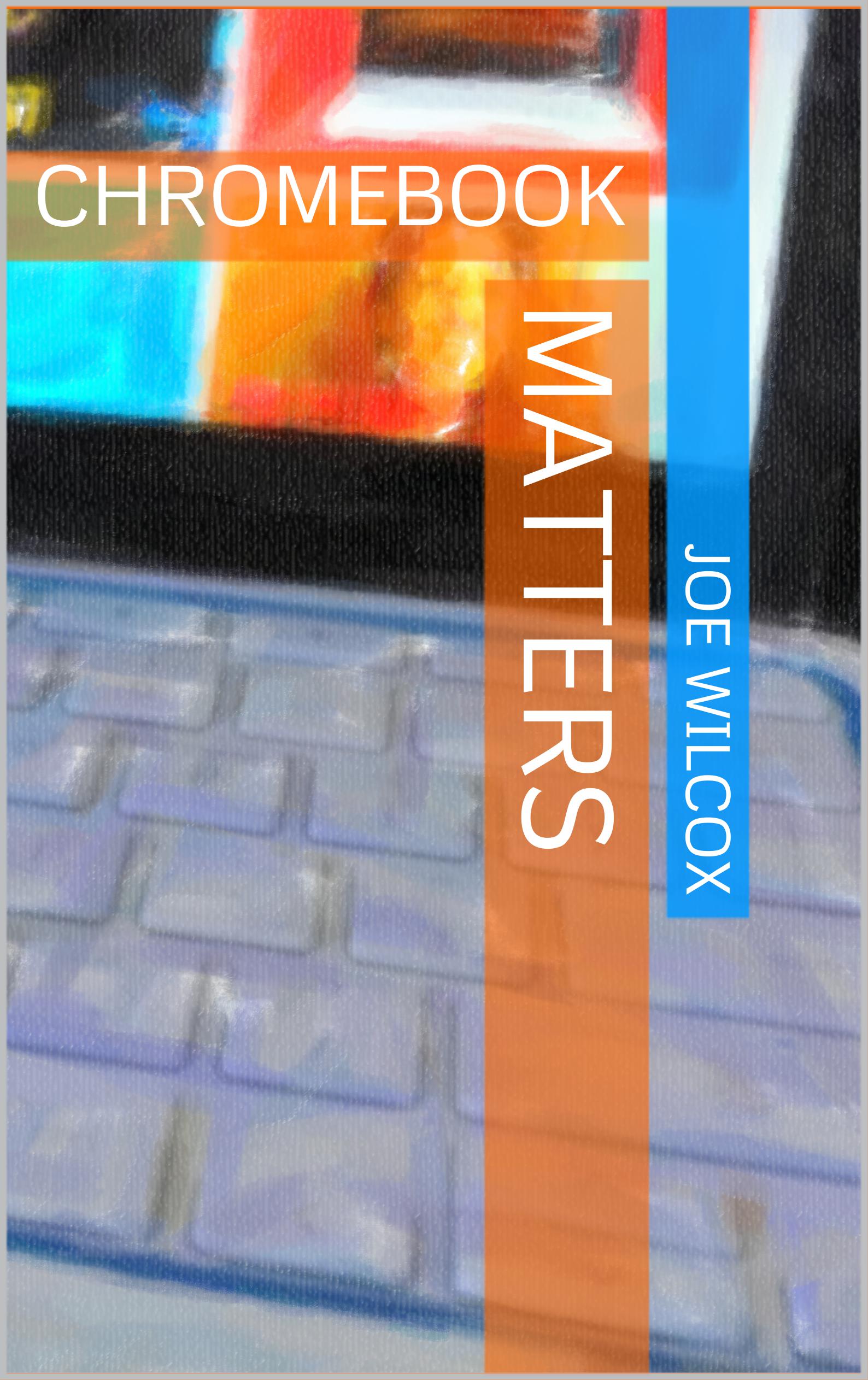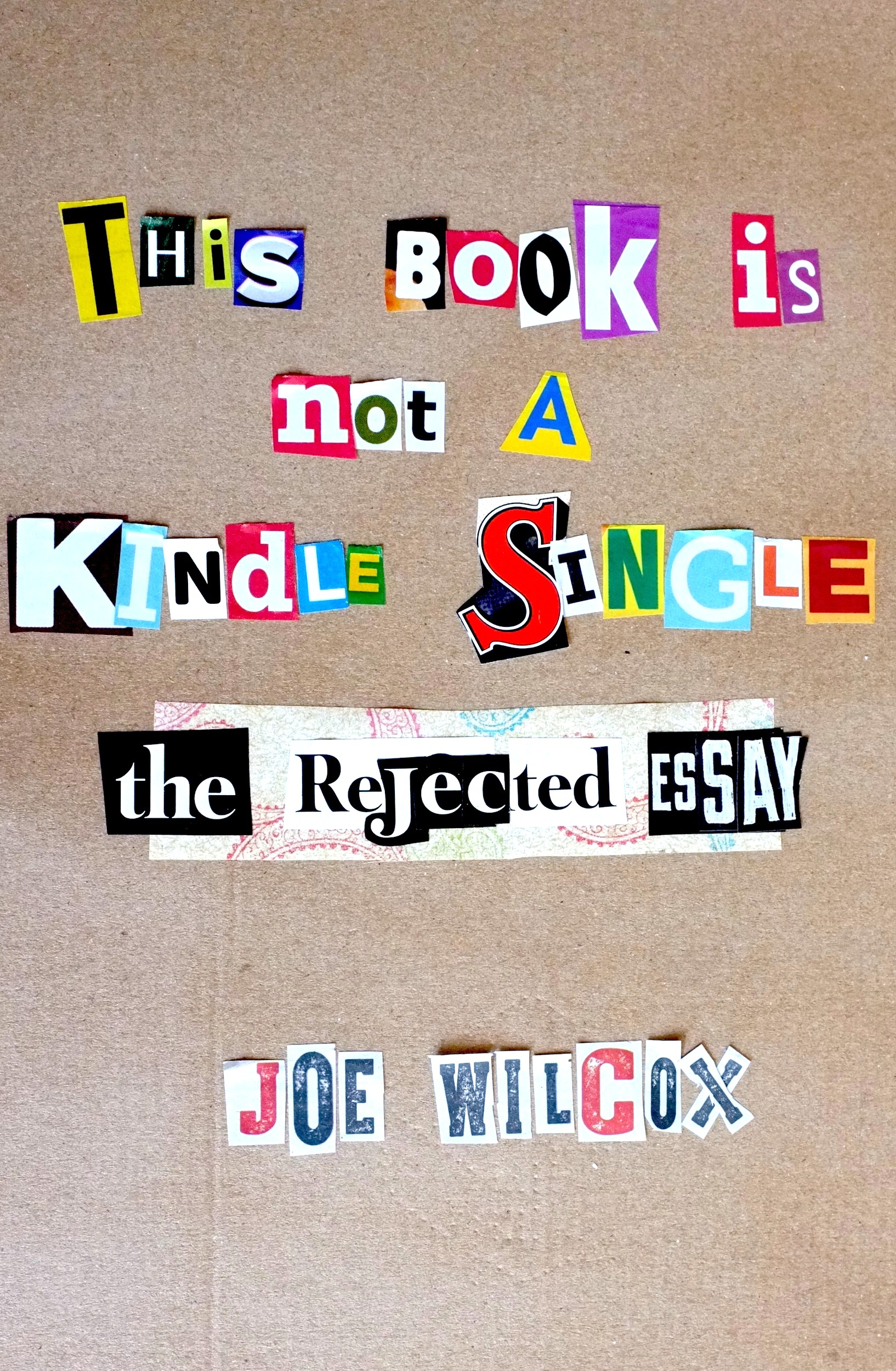Okay, I can agree: We should be worrying about Google’s assimilation and consolidation, and here’s why. Without question Google is the new Microsoft. The search giant seeks a unified suite of indispensable integrated products—indispensable not […]


Okay, I can agree: We should be worrying about Google’s assimilation and consolidation, and here’s why. Without question Google is the new Microsoft. The search giant seeks a unified suite of indispensable integrated products—indispensable not […]

My fourth ebook, Chromebook Matters, published over the holiday, and this one is available from Kindle Store, Google Play, and Smashwords. I’m done with Amazon exclusives.
Chromebook Matters is not a how-to book. It’s all “why” and “what”—why Chromebook matters and what it can do for you. I write an introduction for anyone—businesses, consumers, government agencies, or schools—considering buying Chromebook. I also address anti-Chromebook propaganda. Some claims are valid. Most are not.

Today, Ian Betteridge posts: “One thing that is impossible not to notice on Google+: There’s a very distinct skew towards big Google fans in commenting. It doesn’t matter which tech site’s page you look at, the (in my view, tedious) ‘fanboy’ mentality is hotter here than on any other social network”.
I commented on his post but want to draw more attention to Ian’s observation, to which I concur. I am rethinking my social service presence because of pervasive Googlism. While now immersed in the Google lifestyle, I am not a Google fanboy. But the leanings here are quite strong now, and tipping more all the time. Also, there is increasingly less tolerance for non-Google tech posts and more criticism of those regarding competitors like Apple.

Google+ reminds subscribers all about birthdays in the stream, and in sending wishes to someone from Nexus 7 FHD this morning, the default message, “Happy Birthday, +person’s name!”, lit up my synapses.
I wonder about the hidden, subliminal positive connotations of Google using a plus-sign before all subscribers’ names. Does seeing it make us feel happier?
Facebook uses “Like”, which is loaded with positive connotations, and Google copied the approach with +1, which makes sense for a company where numbers are so important—from the math behind search to all the data associated with the search keyword business model.

Yesterday, my first ebook published to Amazon, with the strangest of titles, having nearly nothing to do with the contents. In May, I submitted “The Principles of Design” to the bookseller for consideration as a Kindle Single. Singles are curated, short-form works, between 5,000 and 30,000 words. Amazon acts as editor and publisher. Four weeks later to the day, I received a rejection letter, without any explanation.
That put me squarely down the self-publishing path, which is exactly where I didn’t want to be for this first work. Books are a strange frontier to me, a vaguely familiar landscape but alien—like Mars is to Earth. I wanted Amazon to walk me across this domain. Besides, to start, I plan to write mostly shorter non-fiction essays, which look to be perfectly-suited for Kindle Singles. But the rejection email, and realization that editorial approval takes up to a month, changed plans.
When I reported the original iPhone launch in June 2007, there was sense of history among the people waiting to buy. Several shared similar sentiment: That we would all look back in five or 10 years and see the mobile as a defining moment in computing. They were absolutely right. I feel similarly about Chromebook Pixel, not that as many people appreciate what it represents compared to the larger number of folks rushing to purchase Apple’s smartphone.
Google’s computer is an acquired taste, and so delish you don’t easily go back. But there’s a Vegemite quality. Most people wouldn’t eat the spread, but ask those who do—they can’t live without it. Likewise, Chromebook Pixel isn’t for everyone, but is for me and possibly could be for you, if given a chance.

A warning from Google News: Credibility and trust are longstanding journalistic values, and ones which we all regard as crucial attributes of a great news site…If a site mixes news content with affiliate, promotional, advertorial, […]
Fourteen days using Google’s first computer, my decision is made: I would buy one and will someday (income taxes are brutal, so my options are limited short-term). I firmly believe that most buyers willing to spend $1,299 (32GB WiFi) or $1,449 (64GB 4G LTE) will be satisfied with Chromebook Pixel. That’s because I presume they wouldn’t dole out that much without really examining how the computer would fit their lifestyle; also, Google seeks the same people coming from Windows who might buy MacBook Pro 13-inch.
Seven days ago, in my hands-on review, I looked at the overall experience and price benefits from the perspective of hardware. Here, I start to answer larger question: Can Pixel be your main and only machine? For most people, the answer is an unequivocal “No”. But “most people” isn’t Google’s target market.
Chromebook Pixel is an enigma. A misfit. Some critics call it a miscalculation—that Google created a pretty kit that offers too little value for the high price. For sure, $1,299, or $1,449 for the model with LTE, is more than most people pay. According to NPD, the average selling price of laptops at U.S. retail was $640 in January.
But some people do pay more. Apple laptops start at $999 and, according to NPD, the ASP was $1,419 last month. Unquestionably, I see Chromebook Pixel as priced against Macs, and after using Google’s laptop see it targeted at the same professionals who value Apple notebooks. The question any potential buyer should ask: Is Pixel worth spending as much as Google asks? I will answer that question in several parts—this initial review is first.

Four months ago, I put aside (and later sold) MacBook Air for the Samsung Series 5 550 second-generation Chromebook and never looked back. They say three times is a charm, and that proves true with my third foray using a laptop running Chrome OS. The first two proved life-changing, as I adopted a partial cloud computing lifestyle. Now I live a vigorous, charmed cloud life, which includes Android embrace.
Chromebook isn’t easy, because it demands a thinking reset. I had to put aside concepts about everyday computing, fear of losing Internet connection and perceptions about hardware configurations and what’s good enough performance value. Something else: When I started this journey, in December 2010, Chrome OS wasn’t good enough, because there weren’t enough supporting cloud apps. That has changed dramatically, because of Chrome Web Store and how much desktop-like utility Google now brings to cloud services like G+ or YouTube.
In an interview published today in the Wall Street Journal, Google CEO Eric Schmidt lays out the next stage in his company’s ambitious plan to replace human agency with automated data processing, freeing us all […]

Have you heard of Reid Reviews? Until this week I hadn’t either. The quality photography review site is nearly invisible to Google search. Paywall is almost certainly the major reason. Photographer Sean Reid charges a yearly subscription of $32.95. The price he charges readers carries a hidden cost: Google search visibility.
In August 2009, I asked: “Can You Charge For News? Ask Google“. In that post, I looked at different online publications, including Advertising Age and Wall Street Journal Online, to assess their Google visibility and effectiveness of their paywalls.